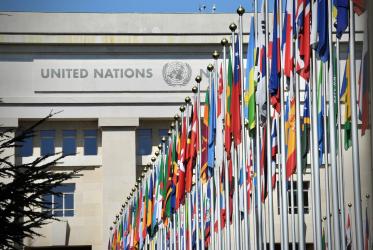The newest Encyclical Fratelli tutti of Pope Francis analyses the religious, social and political context in which we are living, emphasizing some neuralgic points including human rights deficits, globalization and progress without a shared roadmap, demagogic forms of populism, migration, the covid-19 pandemic, the illusion of communication, violence, wars, and the death penalty, and at the same time trying to show a way that might help to navigate through these challenges and overcome them. Pope Francis takes as the centre of his argumentation the Parable of the Good Samaritan and affirms that we are “still ‘illiterate’ when it comes to accompanying, caring for and supporting the most frail and vulnerable members of our developed societies” (§64). In the interpretation of this parable Pope Francis identifies an important key thought that affects us socially and politically, namely the Christian virtue of love. Thinking, working, and acting by cultivating this virtue, which is understood as the cornerstone for our coexistence, people can build relationships, which go beyond networks of associations to an expression of solidarity that finds concrete expression in service. Only by achieving it through a personal conversion can people can share their gifts, realizing a spirit of koinonia (communion). With this vision, we realize that we share the same identity as human beings building together a great human family, which is able to live the “local flavour” with a “universal horizon,” as Pope Francis stresses. Fraternity and social friendship are the forms of peaceful relationships between people inspired by the virtue of love. Fraternity must transcend the boundaries of the biological family creating a universal expression of philia.
The encyclical shows important intersections with the World Council of Churches’ (WCC) diverse areas of work and a great concordance with its vision. The theme of the 11th WCC Assembly, which will take place in 2022 in Karlsruhe, Germany, is “Christ’s love moves the world to reconciliation and unity.” In our world, dominated by dividing forces and individual interests, the assembly theme is an affirmation of faith that Christ’s love transforms the world in the life-giving power of the Holy Spirit. Against the powers of destruction and sin, the assembly theme affirms that the love of the compassionate, crucified, and risen Christ is at the heart of this world. It is not only about Christ’s love for us, but at the same time our love for him and for each other. Love is a school of becoming ever more in the model of the perfect love, which is the Triune God. Love is not something we choose, but it has chosen us first and is choosing us always anew. Making space for the divine love to work in and through us, we discover the way we are called to live our citizenship. The love of God made visible in Christ changes not only our perspective on all our relationships and widens the horizon of our interconnectedness, but also enables us to work for social justice and to condemn every action which affects the dignity of any human being. It is a radical call to all Christians to seek ways of working for peace and reconciliation with people of other faiths and all those of good will. It is a call for the visible unity of the church to become a prophetic sign and a foretaste of the reconciliation of this world with God, and the unity of humankind and all creation.
The Encyclical has a great interreligious potential. Pope Francis recalls several times the great interreligious achievement through the Document on Human Fraternity for World Peace and Living Together co-signed with the Grand Imam of al-Azhar Ahmad Al-Tayyeb in 2019 in Abu Dhabi. In its recent meeting in Bossey, the Higher Committee of Human Fraternity, in which WCC is represented through its general secretary, reflected on similar themes and ways of promoting one humanity, unity, and fraternity.





